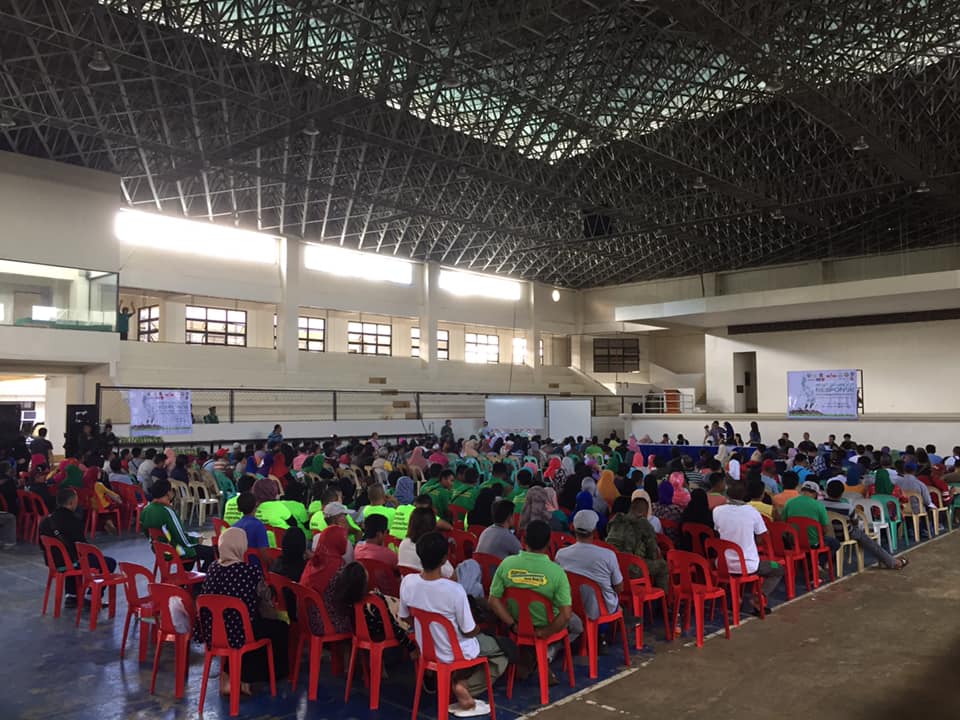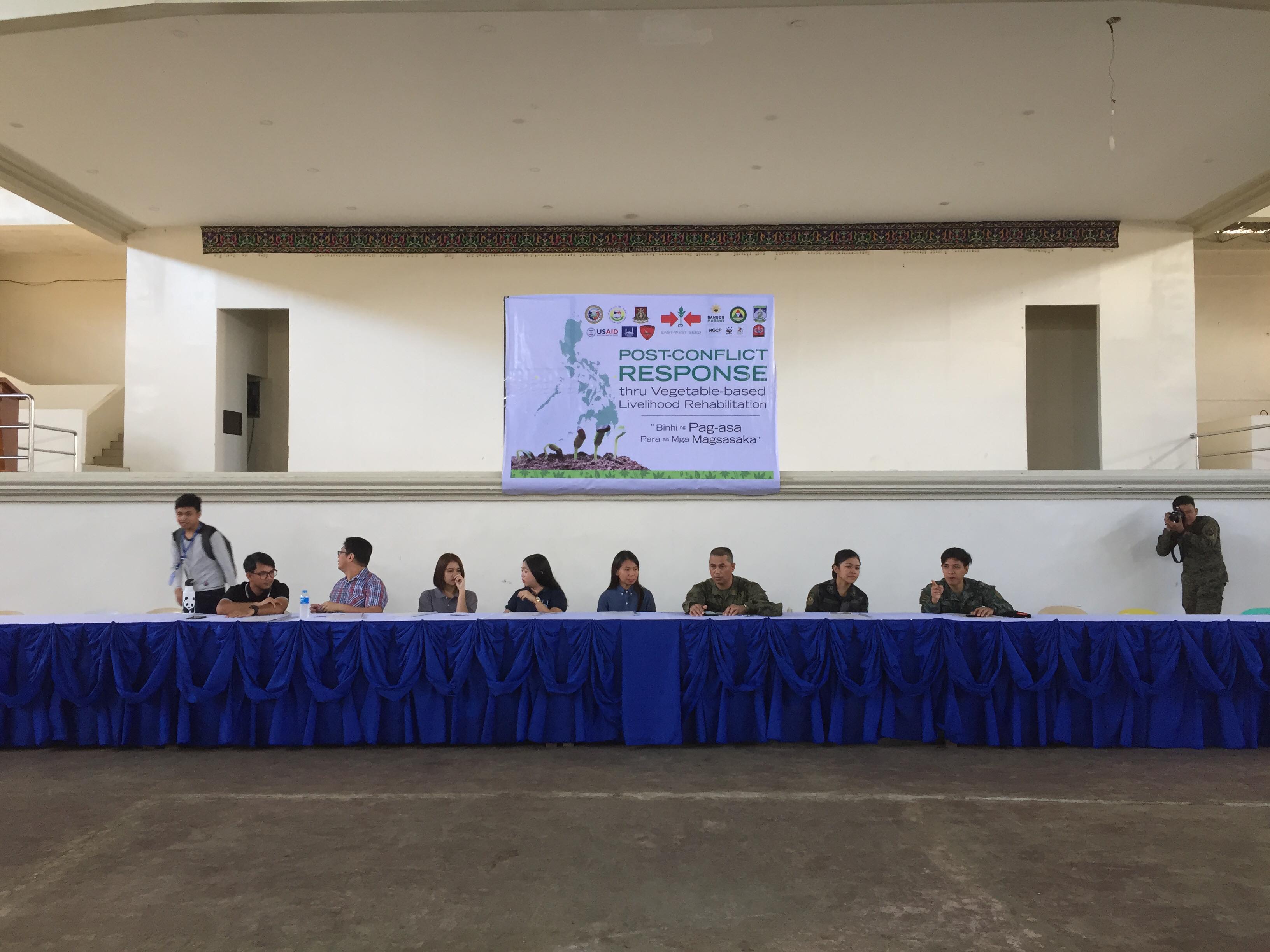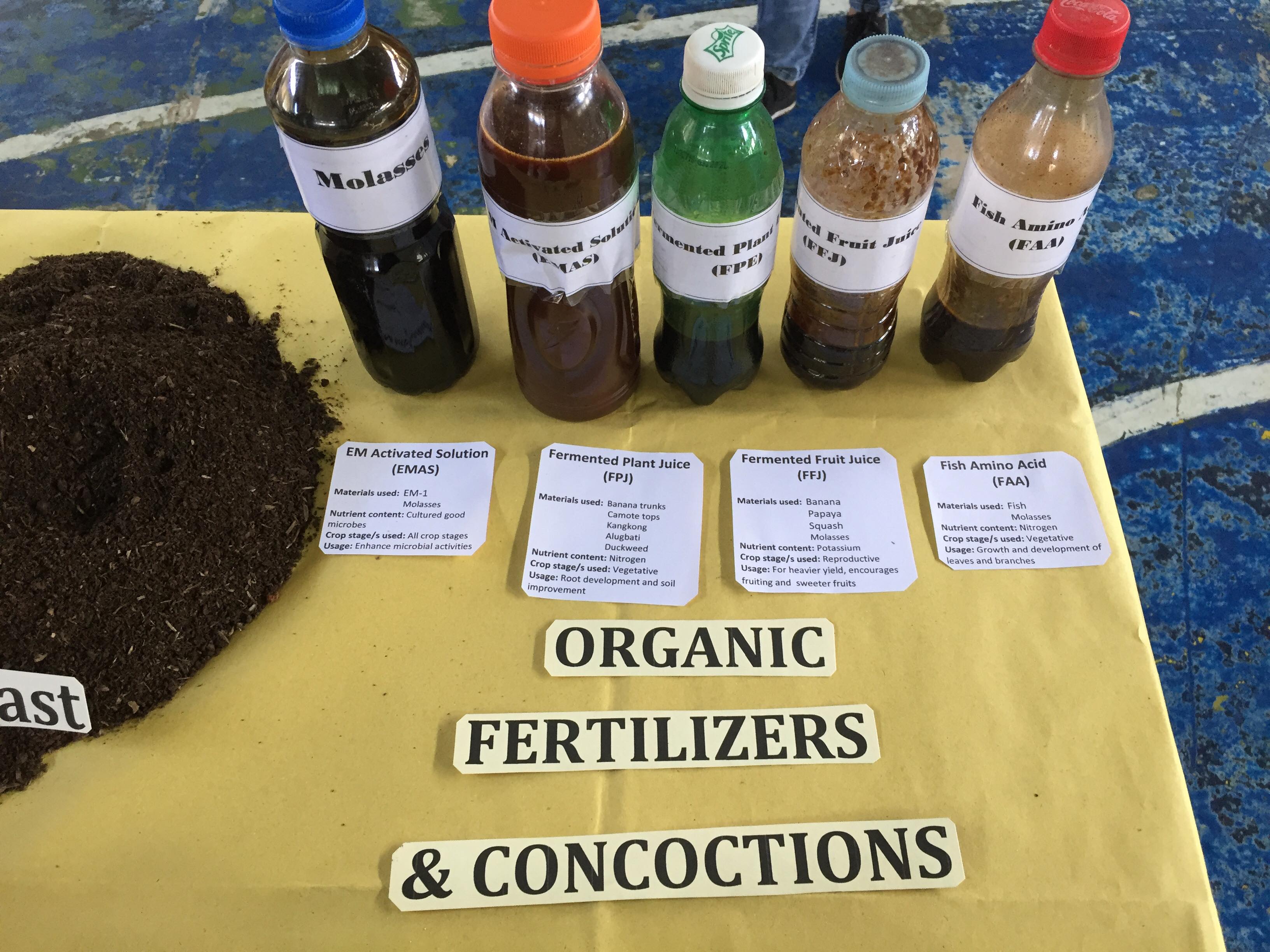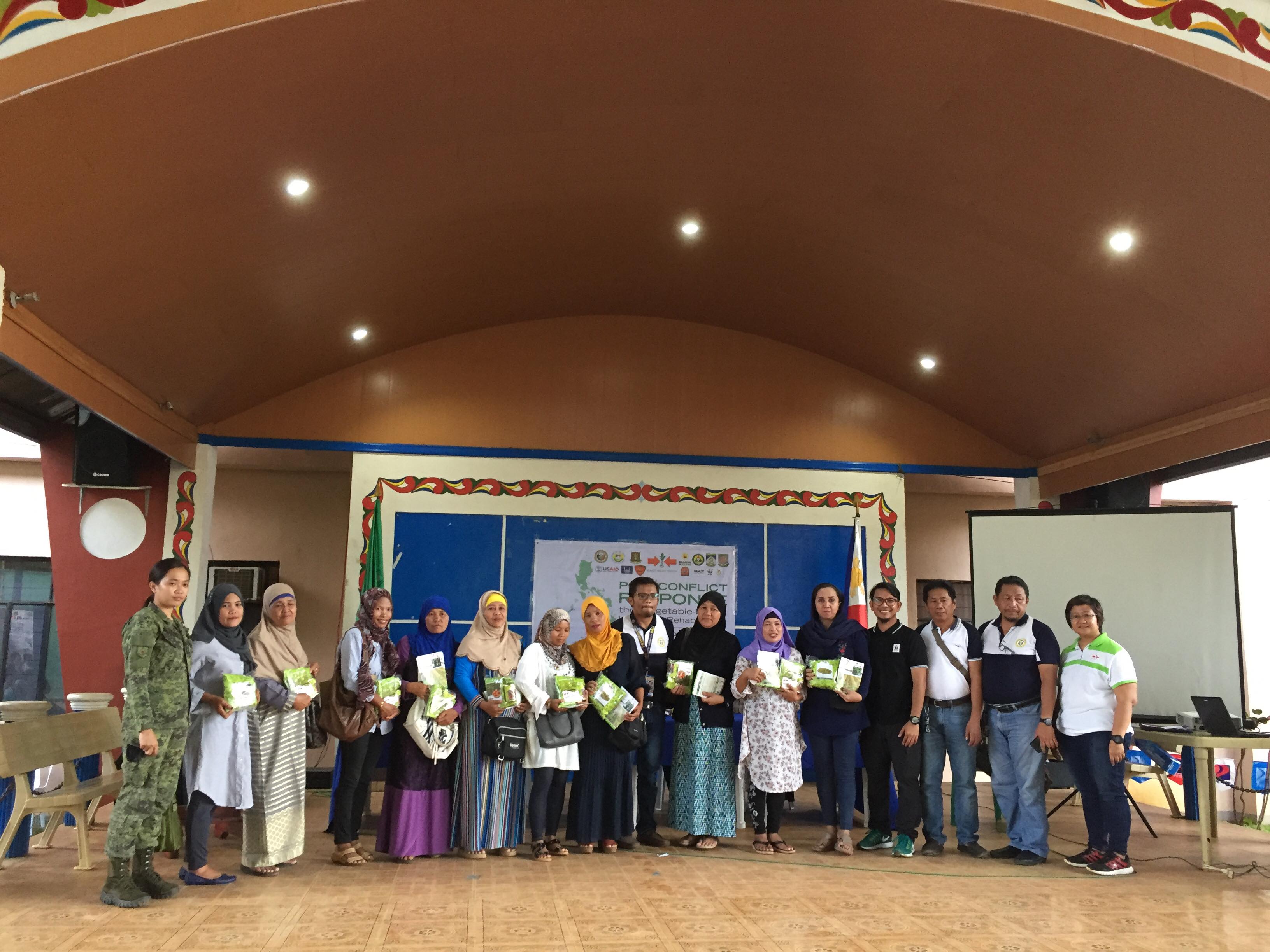Rebuilding Marawi: Food Security and Empowerment in a Time of Post-Conflict
November 2018

The Capitol Gym is filled with rows of Marawi City refugees, victims of the Battle of Marawi now seeking aid and a return to their past livelihood. © Miggo Bautista
Row after row of monoblock chairs, from the front of the court right to the back. Men and women fill the seats, some with children in their hands. All in attendance seemed weary, as if they hadn’t known home in the longest time – and yet their faces were hopeful. They cheer and they laugh and they dance, once the homeless of Marawi now excited for the future they will make for themselves.
On the 23rd of May, 2017, armed insurgents stormed the city of Marawi in Lanao del Sur. The Armed Forces of the Philippines retaliated soon after. The ensuing battle lasted for five months, officially ending on the 23rd of October with a death toll that numbered over a thousand and with 95% of the city reduced to rubble. With over 200,000 residents displaced, international organizations began pouring in to provide humanitarian relief to the ongoing crisis. There was the need for aid – and on top of that, the need to help the victims back up on their feet.

NGO Members sit side-by-side with military officials. Post Conflict Response through Vegetable-Based Livelihood Rehabilitation is a multi-sectoral effort involving fourteen different organizations, both local and international. © Miggo Bautista
In late October of this year, an event entitled ‘Post Conflict Response through Vegetable-Based Livelihood Rehabilitation’ gathered over a thousand displaced households at the freshly rebuilt Capitol Gym of Marawi City for a full day of workshops of farming and agriculture, culminating in the delivery of seeds to those in attendance.
As partners, WWF-Philippines saw an opportunity to take their work in Central Mindanao. The Sustainable Farm to Table project, part of WWF-Philippines’ efforts towards food security together with the National Grid Corporation of the Philippines (NGCP), East West Seed Company and the Federation of Multi-Sectoral Alliance for Development (MUAD) Negros, takes communities struggling with agricultural livelihood and supports them in the development of profitable agribusinesses. Through workshops on vegetable farming and financial literacy, the project teaches communities to be independent while promoting community development through skill and financial capacity.

Five different organic fertilizers and concoctions on display for participants to learn from. Aside from the delivery of aid, the event was a livelihood workshop that sought to capacitate the victims of the Battle of Marawi. © Miggo Bautista
“[Efforts like this] help secure food for the affected – most especially the farmers who have lost their farming livelihood… The sooner we can aid the farmers in producing food using replicable food production technologies, the better for their communities,” explains Muneer Hinay, Project Manager of Sustainable Farm to Table. While the delivery of aid is important during times of post-conflict, organizations such as WWF-Philippines have recognized that efforts should not stop there. Through livelihood trainings, explains Hinay, the people of Marawi are taught to be independent so that the delivery of relief goods can one day cease as stability returns to the area.

Beneficiaries of WWF-Philippines’ Sustainable Farm to Table Project stand for a group photo after the turnover of seeds from the East West Seed Bank. © Miggo Bautista
Events like the one held in October have propped victims back up on their feet, to one day pick their lives back up again. As great a relief as it was, however, more funding and assistance is needed to fuel more livelihood workshops to further lift the victims out of instability. Despite the gravity of the situation they were thrust into, the people of Marawi live with hope, as seen clearly on the faces of the people gathered at the Capitol Gym in late October.
For more information, please contact:
Communications & Media Manager Mr. Dan Ramirez (dramirez@wwf.org.ph)
